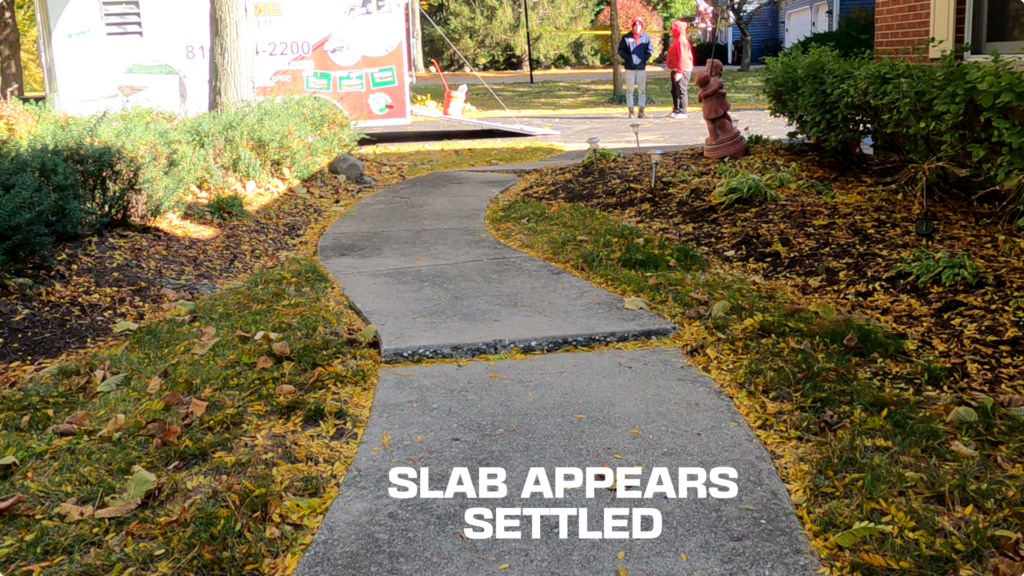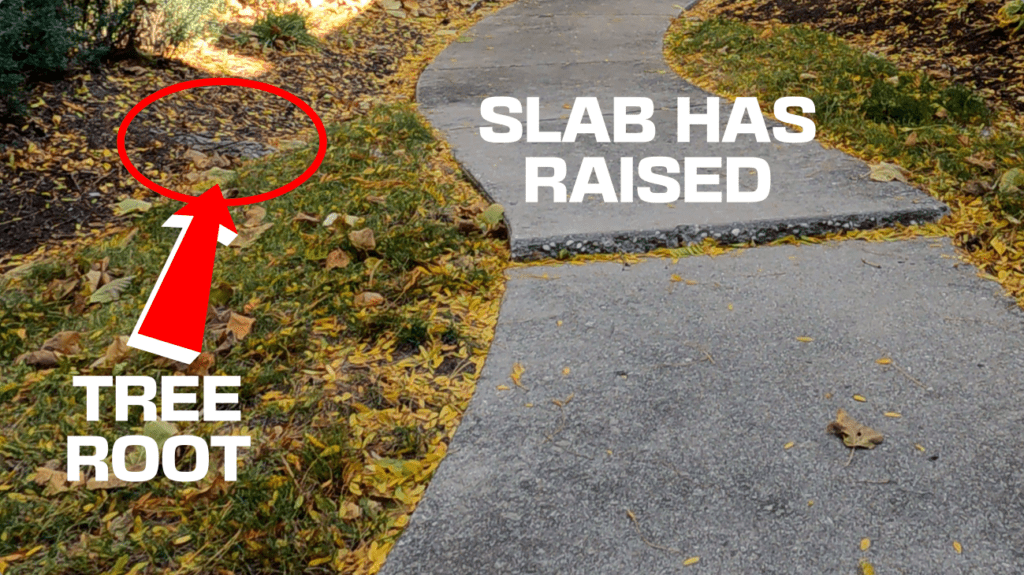A common question we’re asked is, “Can you lower raised concrete?” It’s such a common problem where sidewalk joints break and slabs become uneven with one another. Misaligned slabs may result in harsh trip hazards that are even more dangerous at night or when icy and slippery. These trip-and-fall conditions can result in serious injuries, but they don’t have to. Read on to learn more about this problem and its straightforward solution!
Raised Concrete VS Sunken Concrete
When you see misaligned concrete surfaces, it’s easy to assume that the high piece is raised. On the other hand, it can be just as easy to assume that the lower one sank. So, which is it? Does your problem involve sunken concrete or raised concrete?
Sometimes Concrete Sinks

Most of our projects involve lifting concrete surfaces that have sunk because the subbase underneath them has failed. The subbase has one job: support the slab! However, subbase failures are very common and can be caused by a number of things. A very important aspect of concrete construction is the preparation of the area before the concrete is poured. A solid base should be provided on good, solid ground that’s been properly compacted. This may not be done correctly if the contractor is in a hurry or looking to cut costs. A second common scenario is where the base or ground beneath the slab is affected by poor drainage, where runoff causes the base beneath the slab to erode. Erosion can leave slabs lacking the important support they need to stay at the proper elevation and not crack. In both situations, it’s not the concrete itself that’s failed; it’s a problem beneath the slab.
Other Times Concrete Raises

At this point, it’s understandable how concrete surfaces can sink. But why would they ever be raised higher than they were originally built? A couple of reasons are possible. One less common reason has to do with where we live. Here in the Chicagoland area, we are subjected to all types of extreme weather conditions! From flooding to droughts to extreme heat and deep freezing. A wet fall followed by extreme cold can cause the ground to expand, re-consolidating soils so much that your concrete raises in a way that it never drops back down again.
However, there is a simpler, much more common cause for concrete raising: roots from trees, bushes, or shrubs growing beneath the slab can, slowly over time, cause slabs of concrete to become raised. We see this regularly with municipal and commercial sidewalks with trees planted closely alongside.
A Project With Both Raised and Sunken Concrete
This project in McHenry, IL is a perfect example of both raised and settled concrete. The sidewalk running parallel to the home borders trees on one side and is landscaped with bushes on the other side. Roots originating from either side of the sidewalk have slabs pushed up in opposite directions, causing major trip hazards. Since removing the roots was not an option for this customer, ACME remedied the issue by raising the tilted sections to a level position, then lifting adjacent sections to match.
This sidewalk had sunk badly where it ended at the steps in front of the entryway into the home. This settlement caused a tall step up from the walkway to the first stair step, which was easily rectified by raising the sidewalk back to its original constructed height.
ACME used its Smart Lift System® to raise and support these slabs. Our repairs are much less invasive than old mudjacking techniques. The polyurethane used is a high-density material meeting the compressive strength requirements for raising and stabilizing large highway slabs.

